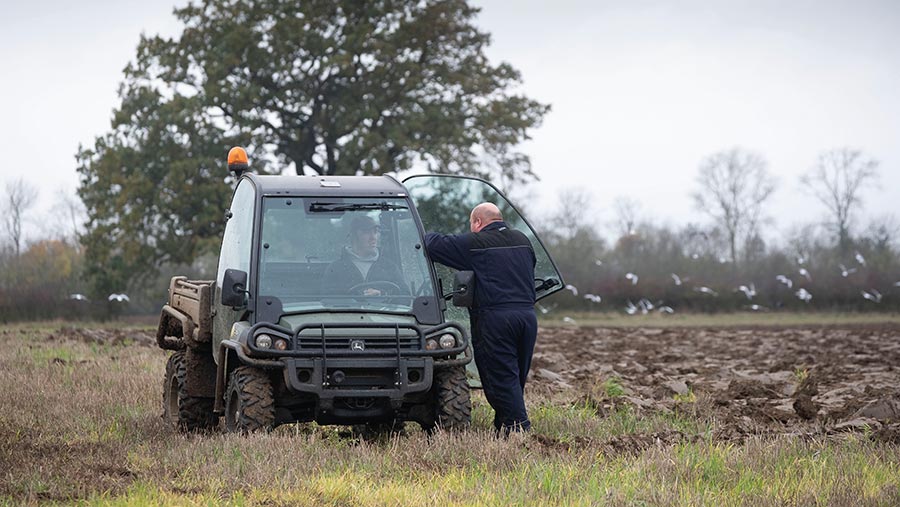Farm labour recruitment problems highlighted by Tiah
 © Tim Scrivener
© Tim Scrivener Farm businesses need to be more willing to recruit workers from outside the sector if they are to tackle the labour shortages and keep their businesses viable, according to The Institute for Agriculture and Horticulture.
A new review into labour shortages carried out in by The Institute for Agriculture and Horticulture (Tiah), in partnership with University of Exeter’s Centre for Rural Policy Research, found that 42% of survey respondents were unwilling to take on staff without experience or a farming background.
Sourcing labour remains one of the biggest issues for the sector and 25% of employers were actively seeking staff when the survey was completed in 2022.
See also: Why staff leave farming businesses and how to keep them
During the next five years, labour will continue to be an issue for the industry with the requirement for specialist and technical staff expected to increase.
This is especially significant as almost half (45%) of businesses that responded to the survey had staff leave them during the past year.
Of the 700 employers surveyed, 63% had found some vacancies hard to fill, and 39% had vacancies left unfilled for more than a month.
Almost three-quarters (72%) of the employers surveyed had not offered management or leadership training in the past three years.
Tiah chairman David Fursdon said: “The agriculture and horticulture industry is acutely aware of the impact of labour shortages on productivity, profitability, and business and personal resilience.
“The results of this new survey drive home the need for a range of actions by industry organisations, policymakers and businesses themselves.
“The research suggests employers could benefit from upskilling in staff recruitment and retention and, in some cases, be more willing to open their doors to the huge pool of potential talent that hasn’t worked in farming or growing before.”
Dr Caroline Nye, research fellow at the University of Exeter, said without substantial change, the impacts on businesses and individuals are likely to be significant.
“While the government and industry leaders have a role to play, employers themselves must also accept some responsibility for the change that is required to ensure business and industry resilience,” she said.
